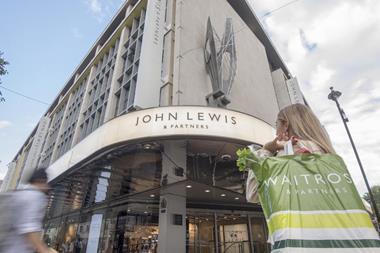On the surface, the government’s National Planning Policy appears to be appears to favour town-centre development.
ACS chief executive James Lowman has said he is taking an “optimistic” approach to the contents, believing ministers “genuinely want to support high streets”. And the BRC says that although its members are still considering the text, its “initial reading” is supportive of the contents.
But many retailers (and commentators) suggest the policy uses soft and vague words such as ‘prefer’ and ‘where practical’ when guiding local authorities to prioritise town centre development. The language, they suggest, is not clear and firm. And one retailer pointed out that whereas the previous planning policy contained guidance, this emaciated policy – trimmed from thousands of pages to just 56 – will not.
Where the policy is unequivocal, however, is where it states that any development that can present a “sustainable” case should go ahead “without delay”. Sustainable development, it says, must be the “golden thread” running through plan-making and decision-taking. So any application containing a strong thread of sustainable intentions, making “economic, environmental and social progress for future generations”, should pass through local authorities without a hitch.
Of course, there is sufficient flexibility in the policy for retailers who wish to build on the edge of town (or outside) to take that critical golden thread and run with it. Planners will not find it hard to build and deliver a coherent sustainable argument for an out-of-town store that delivers larger investment and creates more jobs for future generations. Not to mention one that highlights other practical out-of-town features that are popular with retailers and their customers alike, such as large free car parks.
So will the government be forced to make sacrifices to town centre development in order to deliver growth? Perhaps the supposedly soft and vague terms guiding local authorities were, in fact, carefully chosen. Or will the government readily agree that the policy needs toughening up to avoid the danger Lowman suggests is lurking from “sophisticated developers looking for and finding loopholes for development that harms town centres”?
The 12-week consultation closes on 17 October. Interested parties should make their feelings known.



















No comments yet